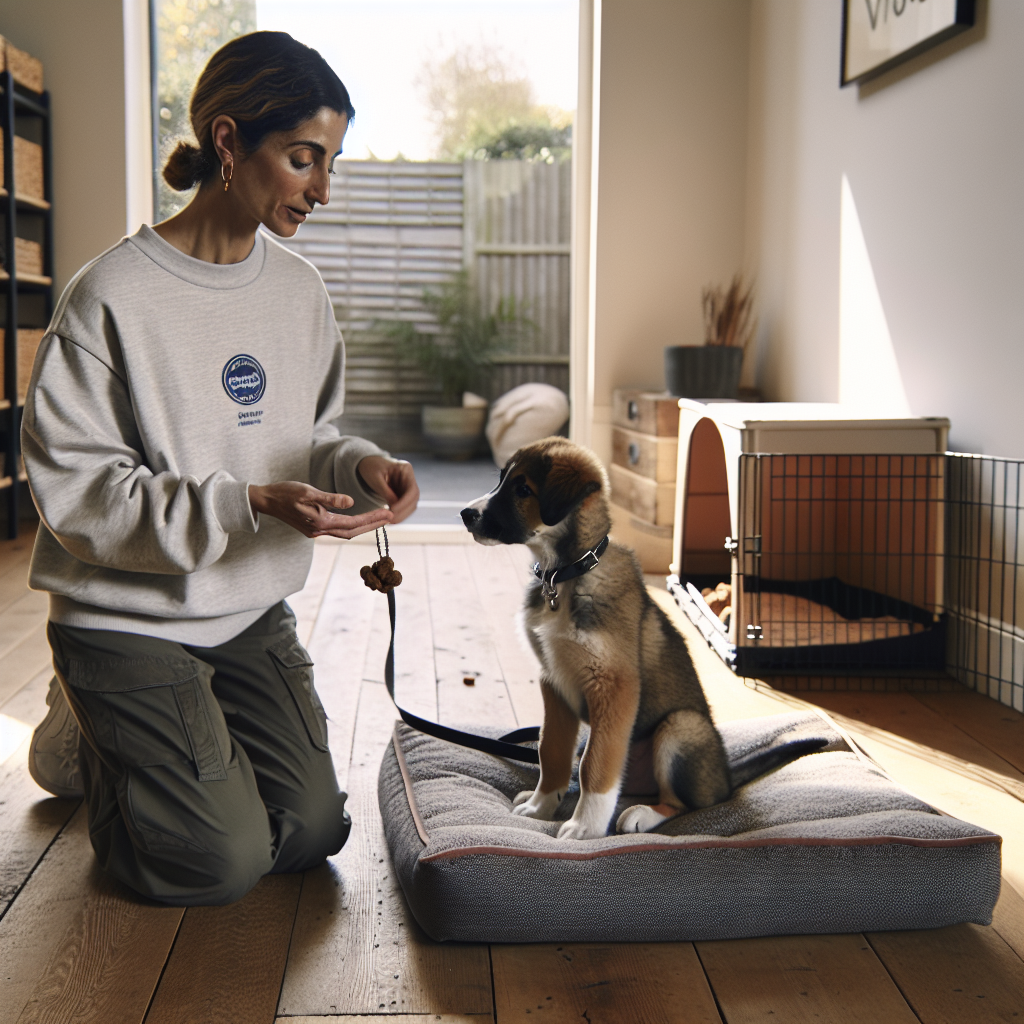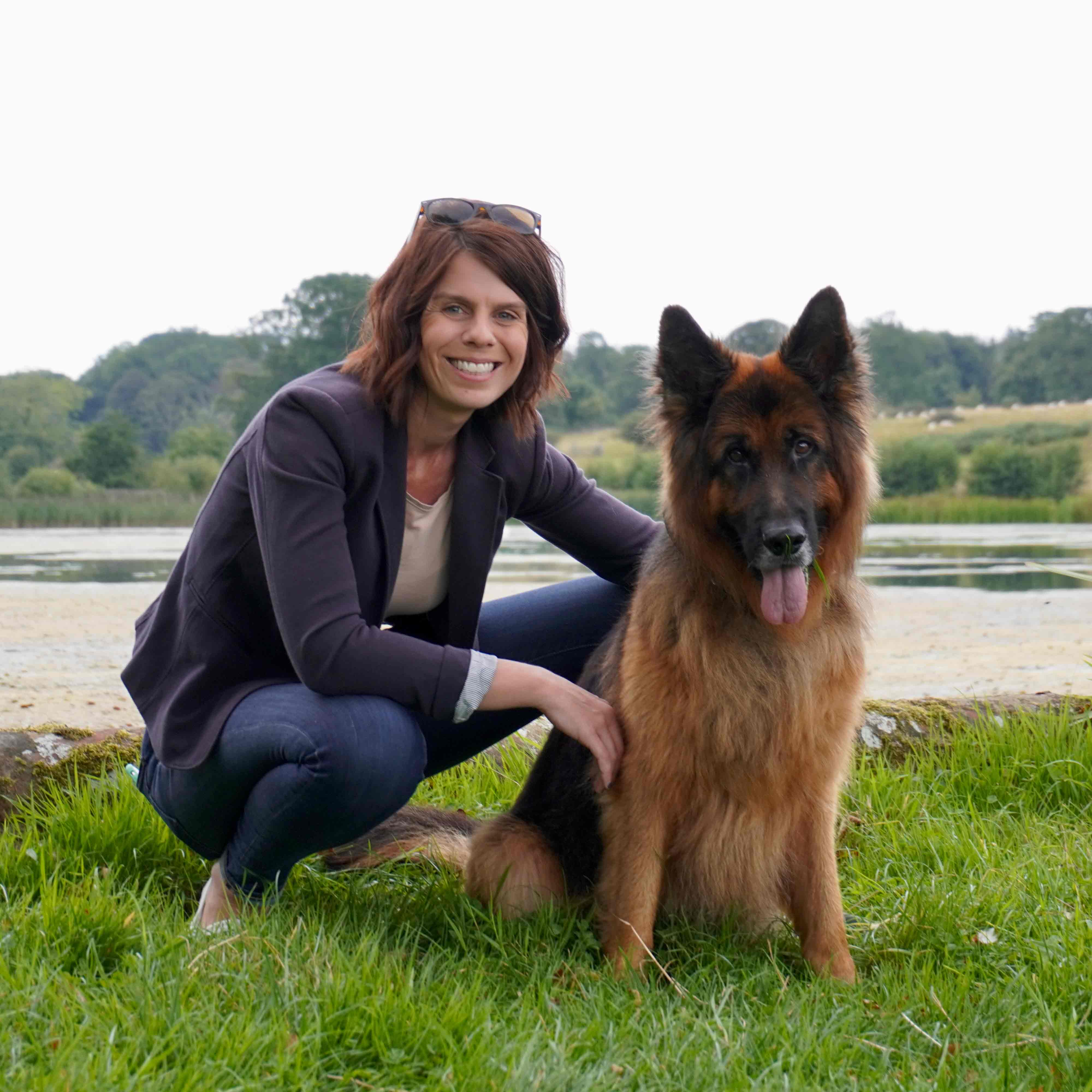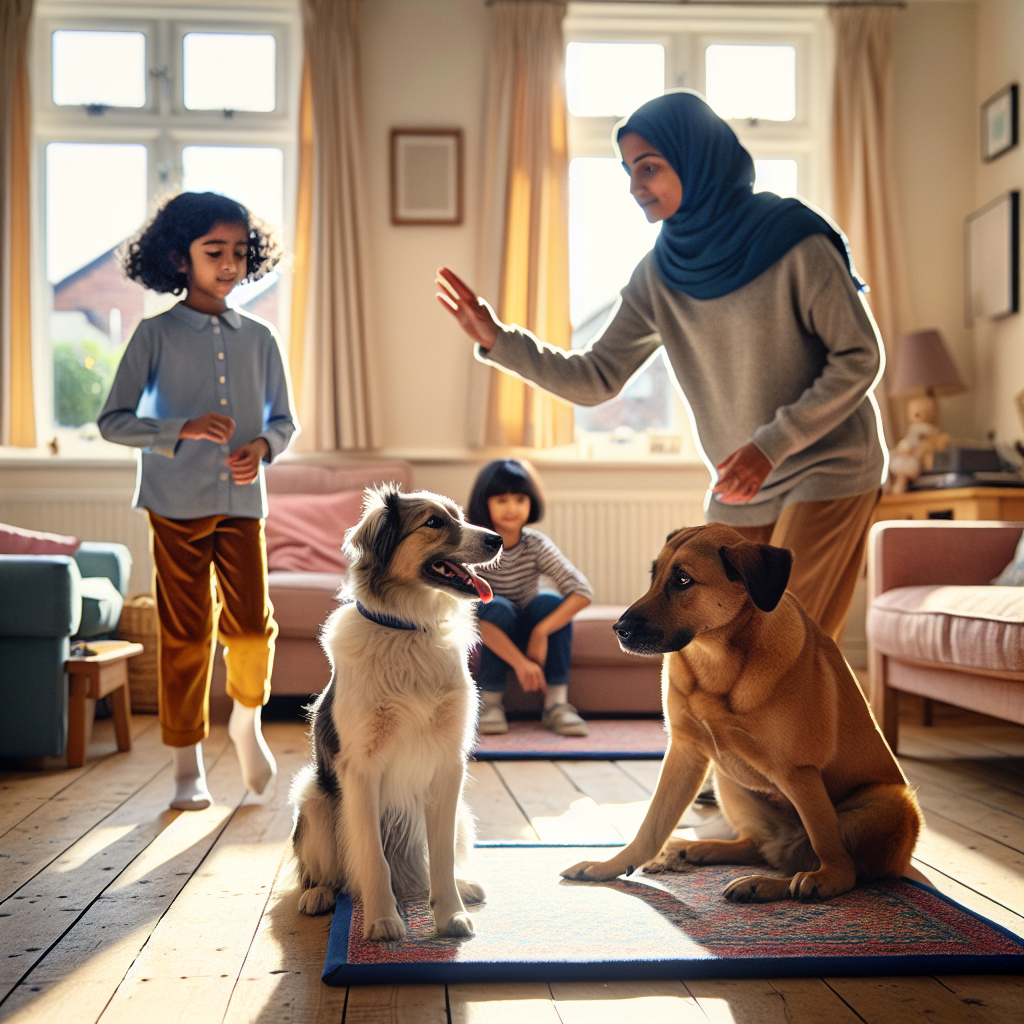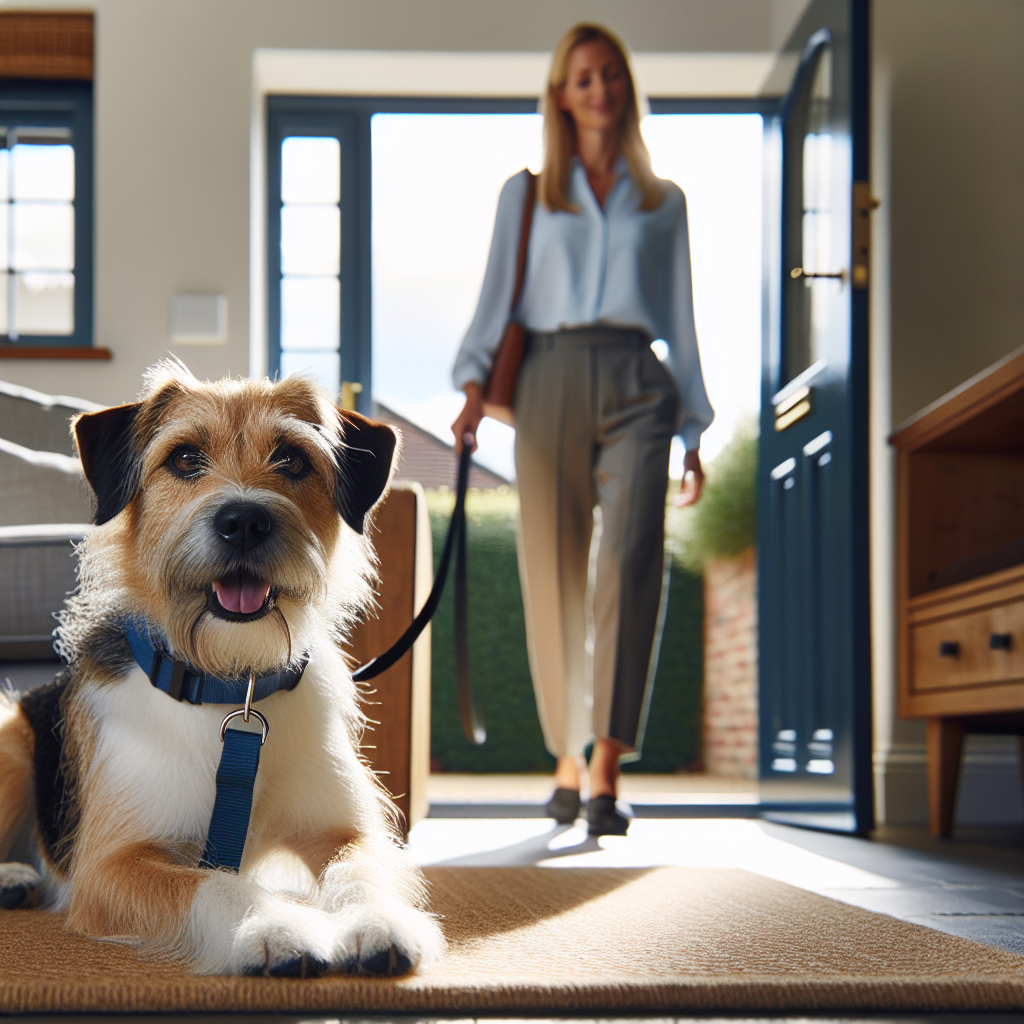Puppy Training for Rescue Dogs

Puppy Training for Rescue Dogs The Smart Method
Puppy training for rescue dogs needs a clear plan, gentle structure, and proven steps that deliver calm behaviour in real life. At Smart Dog Training, we use the Smart Method to guide every rescue puppy and family from day one. Your certified Smart Master Dog Trainer will design a progressive plan that blends trust, motivation, and accountability so your puppy learns fast and feels safe doing it.
Rescue puppies can be confident, sensitive, or somewhere in between. Some have missed early socialisation. Others have had a bumpy start. Smart focuses on clarity and calm. We help you set routines that reduce stress, build stable habits, and create a puppy that listens at home and in the world.
Why Rescue Puppies Need a Structured Start
Even very young rescue puppies carry stories that shape how they learn. A new home brings change, which can show up as overexcitement, chewing, toileting mistakes, or worry. A structured start prevents these from becoming long term patterns. Smart training sets up good choices from day one and rewards your puppy for getting it right.
The Socialisation Window
The ideal socialisation window runs through the first 14 to 16 weeks of life. Puppy training for rescue dogs during this period is about quality, not quantity. We control the environment and shape positive firsts. Your puppy learns that the world is safe, that people and dogs are predictable, and that you are the calm centre of every new experience.
Hidden Stress After Adoption
Many rescue puppies look fine on the surface but hold extra stress inside. It can show two to three weeks after arrival. Smart trainers plan for that. We lower stimulation, support rest, and teach settle skills. We also teach you to read small signals so you can respond early and prevent bigger problems.
What Success Looks Like
- Predictable sleep, toilet, and feeding routine
- Calm handling for collar, harness, and grooming
- Confident social choices without jumping or mouthing
- Reliable name response, recall, and loose lead walking
- Settle on a bed while life happens around your puppy
The Smart Method For Rescue Puppies
Every Smart programme follows the Smart Method. It is structured, progressive, and outcome driven.
- Clarity. We use simple commands and precise markers so your puppy understands what earns reward.
- Pressure and Release. We give fair guidance, then release and reward the instant your puppy makes the right choice. This builds responsibility without conflict.
- Motivation. Food, toys, play, and praise create eager engagement and a positive emotional state.
- Progression. We layer distraction, duration, and difficulty step by step until skills hold anywhere.
- Trust. Training deepens the bond, creating a puppy that is calm, confident, and willing.
A Smart Master Dog Trainer will coach you through these pillars and tailor each step for your puppy’s history, breed traits, and daily life.
The First 72 Hours Decompression Done Right
Start slow. The first three days set the tone. Keep the world small and predictable.
- Quiet home base. One room with bed, water, and safe chew. Supervised time only.
- Short toilet trips. Same door, same spot, same phrase. Reward the instant they finish.
- Simple routine. Sleep, toilet, food, gentle play, settle. Repeat.
- Limited visitors. Let trust build with you first.
- Soft exposure. Hear the world from a safe distance before meeting it.
Decompression is part of puppy training for rescue dogs because calm brains learn best. When your puppy settles easily at home, we start to add the world in measured steps.
Trust And Clarity From Day One
Trust grows when your puppy can predict what happens next. We use consistent words and consistent timing.
- Name means look at me
- Yes means correct and the reward is coming
- Good means continue the behaviour
- Free means you are released
Clarity reduces confusion. Confusion creates stress. Your Smart trainer will help you and your puppy love simple, clean communication.
House Training That Actually Sticks
Rescue puppies succeed faster with structure. Follow these steps.
- Routine. Take your puppy out on waking, after food, after play, and every one to two hours.
- Location. Use the same toilet spot to build a habit.
- Timing. Go straight to the spot, wait calmly, and reward the second they finish.
- Supervision. Indoors on a lead or within sight. No free roaming until habits form.
- Clean up. Use an enzymatic cleaner to remove scent so mistakes do not repeat.
Stay patient. Keep success easy. Puppy training for rescue dogs succeeds when we prevent mistakes rather than react to them.
Crate And Settle Skills For Calm Behavior
Crate training is not confinement. It is a safe bedroom where rest and recovery happen. Smart teaching keeps it positive.
- Open door feeding so the crate predicts good things
- Short naps after play to build a sleep rhythm
- Chew time in the crate to teach calm focus
- Door manners so excitement does not burst out
We also teach settle on a bed in living spaces. Your puppy learns that doing nothing is a skill. That single skill changes daily life.
Socialisation That Builds Confidence
Socialisation is not free for all play. It is controlled exposure that teaches good choices. For puppy training for rescue dogs, quality is everything.
- People. Meet calm adults and children who follow your rules.
- Dogs. Meet steady adult dogs first, then matched puppies in short sessions.
- Places. Visit safe locations at quiet times before busy times.
- Sounds. Pair new sounds with food at low volume, then increase slowly.
- Surfaces. Teach confidence on grass, wood floors, metal grates, and steps.
End every session with your puppy wanting more. Stop before they are tired or overwhelmed.
Handling And Vet Prep
Handling is a life skill. We make it a game. Pick one body area per day.
- Collar and harness on and off with food for stillness
- Paws touched and nails tapped while licking a safe chew
- Ears and mouth inspected for one second at a time
- Body scans with a flat hand, then a gentle towel
These micro sessions make grooming and vet visits routine rather than dramatic. A Smart Master Dog Trainer can set up a weekly plan so progress is steady and stress stays low.
Engagement And Marker Training
We teach your puppy to love working with you. Engagement is the heartbeat of the Smart Method.
- Attention. Say the name once. Reward eye contact.
- Follow. Move backward a few steps. Reward the puppy for following your movement.
- Station. Send to bed. Reward calm stay with food scatter on the bed.
- Release. Use Free so your puppy learns how sessions start and stop.
Markers make learning fast and clear. Puppy training for rescue dogs improves the moment your timing is right and your words always mean the same thing.
Recall That Holds In Real Life
Recall is a safety skill. We build it like a game, then proof it under real pressure.
- Charge the cue. Say Come then feed five times in a row. No requests at first.
- Short range. Ask from one metre and run away to trigger chase. Reward on arrival.
- Long line. Use a training line in safe spaces so success is guaranteed.
- Real life proofing. Add light distractions after many easy wins.
Keep your recall word clean. Do not repeat it. Make arriving at you the best choice your puppy makes all day.
Loose Lead Walking For Young Rescues
Loose lead walking is built on engagement, not strength. We teach your puppy to choose your side and enjoy staying there.
- Start indoors. Reward at your left leg for one or two steps at a time.
- Pattern games. Walk a simple square. Reward each corner.
- Sniff breaks. Teach a cue that releases your puppy to explore, then call back to heel.
- Short sessions. End while it still feels easy.
Pressure and release is part of the Smart Method here. A light guide on the lead pairs with a timely release and reward when your puppy returns to position. This is fair and easy to understand.
Calm Greetings And Impulse Control
Jumping and mouthing are common in rescue puppies. We fix them with clear rules and fast feedback.
- Four feet earn attention. Ask for sit before anyone greets your puppy.
- Hands off when paws leave the floor. Attention returns when calm returns.
- Chew in mouth during petting. Give a toy to fill that busy mouth.
- Short greetings. Success grows with quick wins.
Puppy training for rescue dogs turns chaos into predictable, polite greetings that people love.
Chewing, Biting, And Teething
Chewing is normal and healthy. We direct it rather than fight it.
- Rotate safe chews to keep novelty high
- Use frozen options to soothe gums
- End play the second teeth touch skin, then restart calm play
- Provide food puzzles to stretch brain and jaw in a good way
Supervision and smart management protect your home while your puppy learns what is theirs.
Alone Time And Separation Skills
Many rescue puppies find being alone hard. We teach that alone time is safe and predictable.
- First steps. One minute in a crate or behind a baby gate while you move nearby.
- Predictable exits. Same phrase and same calm routine.
- Return neutral. Save greetings for when all four feet are on the floor.
- Slow increase. Add minutes only when the last step is solid.
If your puppy struggles, we adjust the plan. Smart trainers give you the exact dose of difficulty that builds resilience without fear.
Play, Enrichment, And Calm
Balanced energy makes balanced behaviour. Smart plans include daily brain work and rest.
- Two to three short training games per day
- Structured play that ends on your cue
- Sniff walks that teach calm choices
- Daily nap blocks to protect a healthy sleep need
Puppy training for rescue dogs should leave your puppy happy and ready to rest. Over tired puppies do not learn well.
Common Mistakes To Avoid
- Too much freedom too soon. Keep rooms closed and supervise.
- Busy social calendars. Choose quality over volume.
- Inconsistent words and rules. Agree on language and stick to it.
- Long sessions. Keep training short and positive.
- Ignoring small stress. Early support prevents big problems.
Progression That Sticks
Progression is the spine of the Smart Method. We raise criteria slowly and predictably.
- Increase only one factor at a time. Distance or duration or distraction.
- Return to easier steps after a struggle so wins stay high.
- Measure behaviour, not luck. Film short sessions to track changes.
- Graduate to real life. Practise in parks, shops, and family settings when ready.
Puppy training for rescue dogs becomes reliable when each layer is set firm before the next one goes on top.
When To Bring In A Professional
If you see panic, freezing, or persistent growling, or if you feel stuck, bring in a professional. A Smart Master Dog Trainer will assess your puppy, your environment, and your goals. We then build a plan that delivers progress you can see and feel.
Ready to turn your dog’s behaviour around? Book a Free Assessment and connect with a certified Smart Master Dog Trainer - available across the UK.
Smart Programmes For Rescue Puppies
Smart Dog Training delivers dedicated pathways for every stage.
- Puppy Foundations. House training, crate and settle, name response, recall, and calm greetings.
- Family Obedience. Loose lead walking, reliable recall, impulse control, and good manners at home and in public.
- Behaviour Support. For sensitivity, fear, or frustration. We pair confidence building with structured accountability.
- Advanced Pathways. When your dog is ready, you can progress to service dog foundation or protection sport readiness with clear standards.
All programmes follow the Smart Method and are delivered by certified trainers who guide you step by step.
Frequently Asked Questions
Is puppy training for rescue dogs different from other puppies
The core skills are the same, but the pace and structure often differ. Rescue puppies may need a longer decompression phase, more careful socialisation, and extra work on trust and handling. Smart plans are tailored to your puppy’s history and your home.
When should I start training after adoption
Start day one with calm routines and simple rewards for good choices. Formal sessions can be very short at first, often two minutes or less. Your Smart trainer will adjust intensity based on your puppy’s stress and sleep needs.
How long will house training take
With a tight routine and full supervision, many rescue puppies make fast progress in two to four weeks. Consistency is key. Prevent mistakes, reward success, and keep the schedule simple.
What if my puppy is scared of people or dogs
We slow down, create distance, and pair calm exposure with reward. No forced meetings. Confidence comes from safe choices that your puppy can handle. A Smart Master Dog Trainer will map a step by step plan.
Can I crate train a puppy that has lived outdoors
Yes. We build a positive association by feeding in the crate, offering chews inside, and keeping doors open early on. Sessions stay short and calm. The crate becomes a safe bedroom, not a punishment.
How do I stop biting and jumping
Manage excitement, give a chew during greetings, and end play when teeth touch skin. Reward four feet on the floor and mark calm sits. Structure and consistency turn wild greetings into polite behaviour.
What equipment do I need
A well fitted flat collar or comfortable harness, a standard lead, a crate or pen, a bed, food rewards, a few toys, and safe chews. Your Smart trainer will advise on fit and use so your puppy is safe and comfortable.
When should I get professional help
Bring in help if stress rises, behaviour stalls, or you feel unsure. An early session saves time and prevents problems from setting in. You can Book a Free Assessment to get started.
Conclusion Start Strong With Smart
Puppy training for rescue dogs is about trust, clarity, and steady progress. With the Smart Method you will build calm behaviour that lasts. Your puppy will learn to settle, walk well, come when called, and handle life with confidence. Smart Dog Training gives you a plan that fits your home, delivered by a supportive expert who stands beside you at every step.
Your dog deserves training that truly works. With certified Smart Master Dog Trainers (SMDTs) nationwide, you'll get proven results backed by the UK's most trusted dog training network. Find a Trainer Near You



